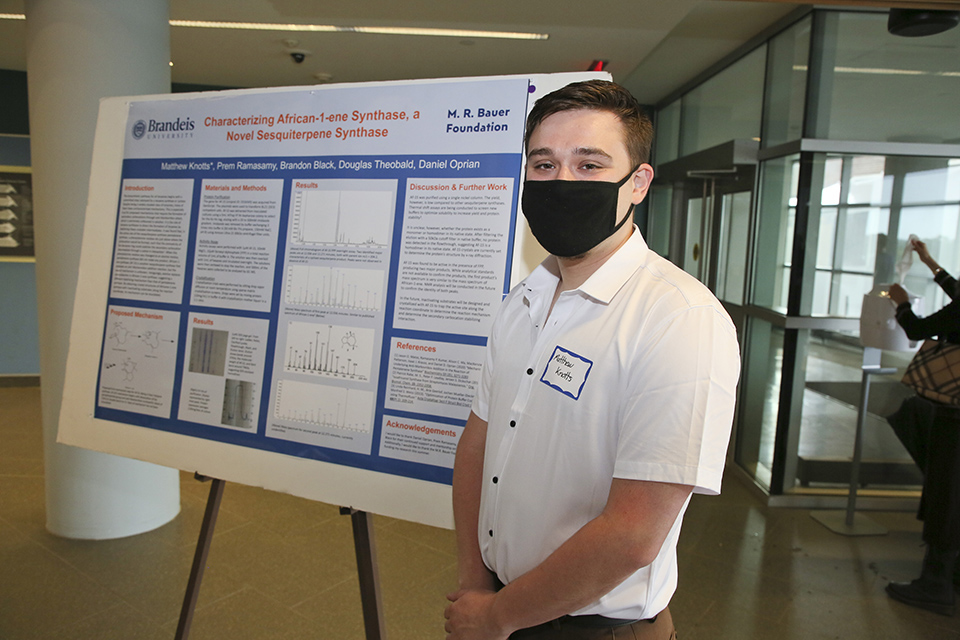Matthew Knotts
M.R. Bauer Foundation Summer Science Research Fellow
Oprian Lab, Department of Biochemistry
Brandeis University

Characterizing African-1-ene Synthase, a Novel Sesquiterpene Synthase
The biosynthetic pathway for all terpenes begins with a committed step catalyzed by a terpene synthase or cyclase. Despite being a widely studied class of enzymes, many of them have uncharacterized mechanisms. This is especially true for proposed mechanisms that require the formation of secondary carbocations through anti-Markovnikov attack, which is extremely unfavored in solution. It is the role of terpene synthases to direct the formation of terpenes by stabilizing these unstable intermediates. It was found that, in the active site of the sesquiterpene synthase pentalenene synthase, a phenylalanine residue sits just above where the carbocation would be formed, such that the aromaticity of the benzene ring could stabilize the secondary carbocation intermediate through a cation-π interaction. When this phenylalanine residue was changed to an alanine residue, pentalenene synthase did not make any product. African-1-ene synthase (Af-1S) is another sesquiterpene synthase that catalyzes an anti-Markovnikov addition reaction, but the overall mechanism is unknown. Intriguingly, alanine replaces phenylalanine in African-1-ene synthase, suggesting a different stabilizing mechanism than that of pentalenene synthase. By obtaining crystal structures of Africane-1-ene synthase with inactivating substrates along the reaction coordinate, its mechanism can be elucidated.Personal Statement and Pandemic Reflection
The COVID-19 pandemic greatly affected my research progress. After returning hundreds of miles away back home in March 2020, I was uncertain about when I could return to the laboratory. Since my research is highly dependent on results obtained from benchwork, being away from the lab meant that my project had come to a halt. While I was still able to participate in group meetings and be involved with others still in the lab, I felt that a major component of my development as a researcher was missing.
I was finally able to return to Waltham in January 2021. While it took some time to become reacquainted with performing experiments in person, I quickly was able to resume my research. As classes began, however, I started to have less time to be in the lab, limiting the progress I could make on my project. After many interruptions the last year had provided, I wanted an opportunity to fully dive into my research. The funding provided by the M.R. Bauer Foundation has allowed me to continue living in Waltham over the summer and to pursue my project full time without other obligations. This summer, I have made great progress, bolstered my capability as a researcher, and feel confident applying to PhD programs in the fall.